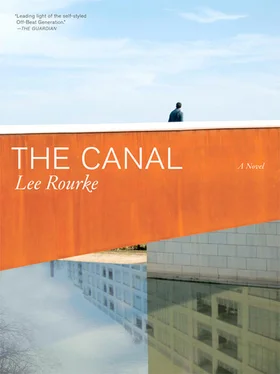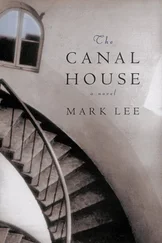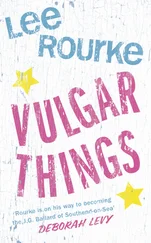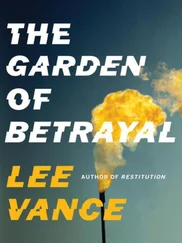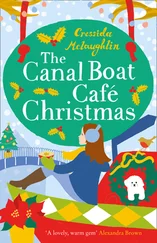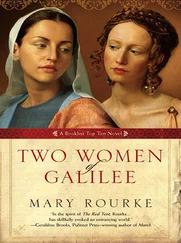“Really?”
“Yes. A harsh life, rough terrain, you see. Topographically unpleasant.”
“Russia?”
“No, Afghanistan. Went there in my twenties, before all this stuff that’s happening over there, when I was young and as fit as a thoroughbred boxer. I wasn’t no hippie. Just curious, that’s all.”
“Did you travel alone?”
“Oh, yes. Always alone. Alone.”
And then silence — like he had drifted off into the realm of the dead. That was all he said. I didn’t bother to continue the conversation. I was happy with the silence.
I’m not sure what type of tree it was. I used to go there to be alone; to do nothing, to be nothing. I was probably about ten or eleven years of age when it started. It was my spot. My own tree. It started much by accident: my older brother was forced to babysit for me when my mother and father embarked on their weekly Soho pub crawl of a Saturday evening. One night my brother, instead of shutting himself in his room and leaving me alone to do what I wanted, invited about eight of his friends around to the house as my mother and father were whisked away in the taxi. He bundled his friends inside the house with purpose. When they saw me there were numerous grunts, grumbles and gesticulations towards me. They acted like I couldn’t see or hear them, like I was nothing, a blip on their landscape. My brother shrugged his shoulders at them. Then, without saying a word, he took me by the arm and manoeuvred me out into the garden. He told me to wait there until he came back. Then he walked calmly back into the house like he owned the place. I could hear his friends laughing. He shut the door and closed the blinds so I couldn’t see inside — not that I was in the least bit interested in them. At first I kicked my heels and looked into next door’s garden to check that no one had seen me. Then I looked up into the night sky for passing aircraft, but the cloud was too low and I could only make do with the drifting ache of their engines filling the air — one after the other behind the thick belt of cloud. I wanted my CB radio that enabled me to tune into the pilots’ frequency so I could listen to them arrange with the control tower their landing coordinates, but this would have meant knocking on the back door for my brother to let me in — which would have been impossible now that they had their music blaring. So I walked to the tree at the bottom of the garden and plonked myself down beneath it. The earth was damp. I didn’t care. I immediately felt safe. I immediately felt alone. Truly alone. A strange feeling began to course through me, to fizz in my bones: a nothingness, an emptiness: Boredom. It glued me to the spot. The whole world could have imploded and I wouldn’t have cared. I was deliriously happy.
I must have dozed off because when I looked back up to my right the old man with one arm had gone and she was there sitting beside me. She looked different. It took me a while to notice that her clothes weren’t as colour coordinated as usual — for all I know this could have always been the case — in fact there seemed to be no coordination whatsoever. She was wearing red Converse All-Stars and tight black jeans; her v-neck sweater looked about two sizes to big for her; her hair was ruffled and she carried what looked like a Burberry’s Mack under her arm — navy blue — but it could have been Aquascutum. It was quite an incongruous look for her. It was the first time I noticed that she was probably younger than me — maybe eight or nine years younger. It was hard to tell. She began to yawn, as per usual. I had never known anyone to yawn as much as her, far too long for comfort, long drawn-out things that seemed to last perfect aeons. She did this like it was the most natural thing in the world and I was sure that she would break into such antics no matter where she was or whom she was with: a first date, a job interview, during sex, at a friend’s funeral. She began to rub the palm of her left hand with her right thumb, slowly at first, but then with more vim and determination. She seemed to be thinking about something. Something seemed to be troubling her.
“Hullo.”
“Hullo.”
“I didn’t see you arrive …”
“That’s because you were asleep … Snoring … I’ve been here for a while actually.”
“Oh … How embarrassing … What have you been doing?”
“Nothing.”
“You look tired … Date last night?”
“No.”
“Did you go out?”
“No.”
“Friends?”
“No.”
“What did you do then?”
“Nothing. I told you. Nothing.”
“Nothing, really ?”
“Nothing.”
“Oh.”
“…”
“…”
“I like to watch the planes …”
“I like to paint …”
“You do?”
“Yes, I do …”
“What’s your name?”
“Oh, come on! How many times are you going to ask me this? You don’t need to know my name, like I don’t yours. Let’s leave it at that, okay?”
“Hmmmm.”
“Okay?”
“Well, okay, what do you paint?”
“Not much.”
“When do you find the time to paint? You’re always here.”
“I just paint when I can; I don’t much like it. I paint with my own blood — I mix it in with the paint. Always acrylic. Mostly faces, faces of me. No one really knows their own face, not even when looking into a mirror. As I do when trying to memorise mine … We can never be truly objective.”
“But they’re still self portraits?”
“Maybe.”
“Why do you paint in your own blood? Does that … Is that painful for you?”
“I don’t know … It’s not that it has a better texture or anything … It’s just the same as if I painted without. Why not paint in my own blood? Most people who paint just mix in water. What is the point in that? Not putting in anything of yourself, I mean?”
“There’s no point, I guess. I don’t know much about painting. I never took to it. Art, modern art, galleries, artists, they leave me cold …”
“I want all my paintings to be destroyed. I like a good cull. I destroy most of them myself. They hold no meaning for me, how could they?”
“What do you mean?”
“I paint for myself and no one else. I paint because I will one day die. Because I want to die. Because I hate myself. Each time I destroy one of my paintings I am destroying part of myself. I am a cliché and I like it that way …”
“I don’t understand.”
“There’s nothing to understand. Nothing .”
“What do you mean?”
“It’s all meaningless.”
“What is?”
“This is.”
“Us?”
“No.”
“What, then?”
“This … This … This is a mask. I wear it. I say I paint to people so they can have a mental image of me …”
“So you don’t paint?”
“Yes, I do paint … It’s my mask.”
“Mask?”
“People wear masks. They are forced upon them. These masks, they do not even know they are wearing them. These masks help them to exist, to co-habit within society. They are clowns for it … I am aware of my mask, as clichéd as it seems. As clichéd as it is . It’s why I want to end my life, why I find life, society, so obvious, so ugly . And those who don’t, those clowns, find life so entertaining.”
Again, she began to yawn. I looked over to the whitewashed offices; the man who spent his working hours walking from desk to desk was standing motionless by a photocopying machine. He was wearing a white shirt, a red tie, and a grey cardigan that looked a size too small for him. The murky water of the canal was bereft of life: not a swan, goose, or coot in sight. Even the banks were empty of pigeons. The murky water was calm, the slight swirl of a thin layer of scum and oil broke the stillness, its thick stench heavy in the damp air.
Читать дальше
